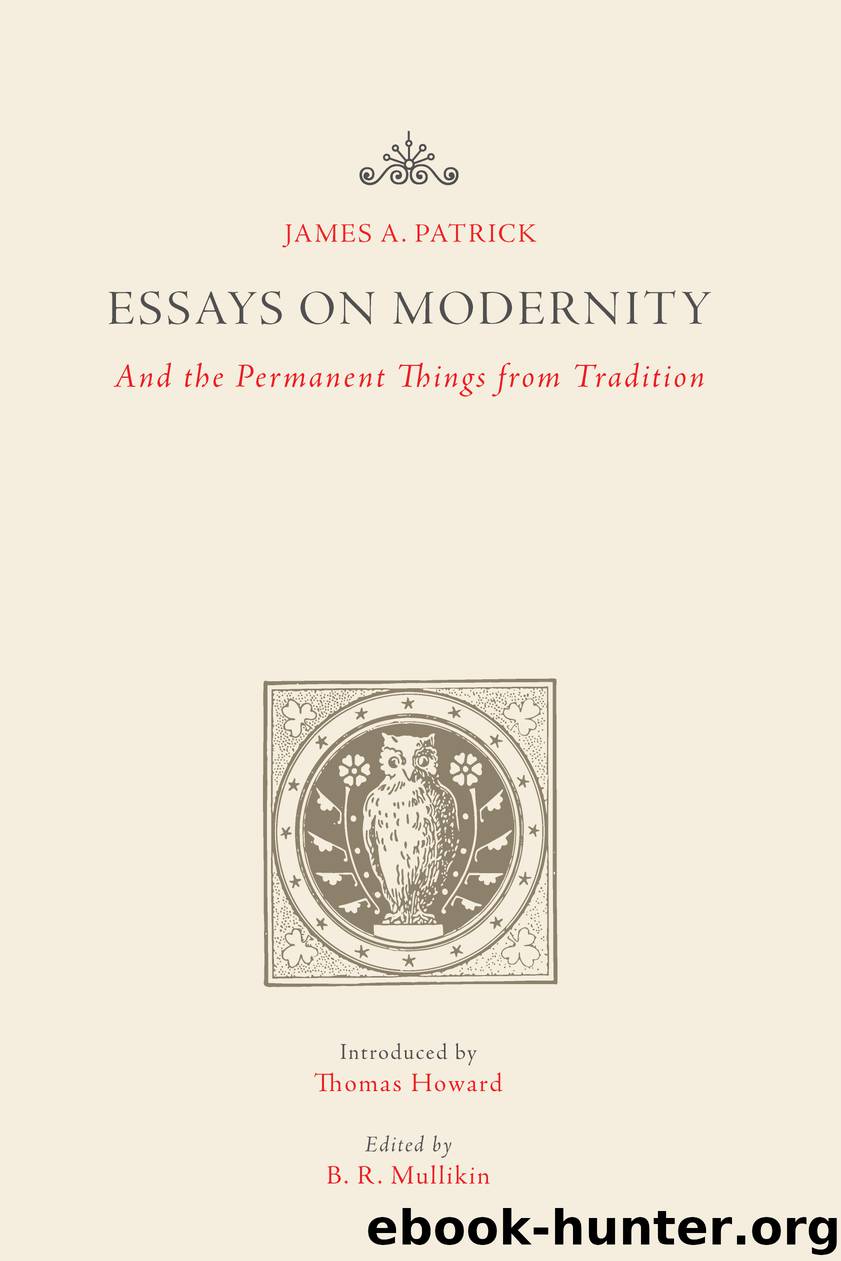Essays on Modernity by James A. Patrick

Author:James A. Patrick
Language: eng
Format: epub
ISBN: 978-1-942786-02-3
Publisher: Tower Press Books
Published: 2015-02-27T16:00:00+00:00
Blessed Charles of Austria and the Kingship of Christ
From the reign of David at the beginning of the first millennium before Christ until the day before yesterday, the form of government in the Christian world was kingship, and that Christian kingship was, given the vagaries of human nature, arguably the best government the world has known. That this might be so is now carefully concealed from school children under a specious historiography which teaches that kings were always tyrants and that the New Testament is about democracy, the latter fact unaccountably obscured during the Dark Ages, rediscovered by enlightened founding fathers, perfected in the United States and spread throughout the world.
Let it be said at once that the founding documents of the United States are works of local genius, offering what may have been the only possible political solution for the modern age in which the idea of an organic culture professing a common faith is unthinkable. But gratitude that the republic has existed for two centuries ought not obscure the fact that our constitutional republic, now increasingly a democracy, was made workable and successful not only by the Constitution and Declaration, but, as the greatest of the founders wrote, by locating those documents among a religious people, Christian, in fact, adherents of a religion founded not in 1689 or 1776 or 1789 but on that hill in far away Palestine at the beginning of time as we count it.
The modern republic at its best is government for a fatherless world. Eric von Kuehnelt-Leddhin, the notable Austrian political theorist, wrote that the three natural political realities are the Fatherhood of God, expressed through His kingship, that makes all men brothers; the fatherhood of the king over the nation; and the fatherhood that creates the family. The age of kings is past, destroyed in part by the feckless, unkingly attempts at absolutism that brought down the Stuarts, Louis xvi, the Enlightenment, Hapsburgs, Nicholas ii, and Kaiser Wilhelm, and in part by the age of revolutions that on philosophic grounds sought a fatherless world, not of brothers but of equal competitors, each living out the dark myth of social Darwinism. In that destructive brew, the last ingredient is the anti-patriarchy which seeks the destruction of fatherhood, that is, secular feminism.
That being as it must be, one of the last, apparently anachronistic, acts of John Paul ii, and one that should engage attention in an era of political malaise, was the beatification of Charles of Austria, the last Emperor of the Austro-Hungarian empire, in the year 2004. Son of Archduke Otto and Princess Maria Josephine of Saxony and great-nephew of Emperor Franz Joseph I, Charles maintained a strong devotion to the Holy Eucharist and the Sacred Heart of Jesus from boyhood. His life motto was: “To seek to know and to do God’s will and to seek to do it in the most perfect way.” His marriage to Princess Zita of Bourbon and Parma in 1911 was founded on their common dedication to Christ and the Blessed Sacrament.
Download
This site does not store any files on its server. We only index and link to content provided by other sites. Please contact the content providers to delete copyright contents if any and email us, we'll remove relevant links or contents immediately.
| Diaries & Journals | Essays |
| Letters | Speeches |
The Rules Do Not Apply by Ariel Levy(4969)
Bluets by Maggie Nelson(4557)
Too Much and Not the Mood by Durga Chew-Bose(4348)
Pre-Suasion: A Revolutionary Way to Influence and Persuade by Robert Cialdini(4232)
The Motorcycle Diaries by Ernesto Che Guevara(4102)
Walking by Henry David Thoreau(3962)
Schaum's Quick Guide to Writing Great Short Stories by Margaret Lucke(3381)
The Daily Stoic by Holiday Ryan & Hanselman Stephen(3324)
What If This Were Enough? by Heather Havrilesky(3311)
The Day I Stopped Drinking Milk by Sudha Murty(3197)
The Social Psychology of Inequality by Unknown(3031)
Why I Write by George Orwell(2955)
Letters From a Stoic by Seneca(2800)
A Short History of Nearly Everything by Bryson Bill(2698)
A Burst of Light by Audre Lorde(2607)
Insomniac City by Bill Hayes(2558)
Feel Free by Zadie Smith(2482)
Upstream by Mary Oliver(2390)
Miami by Joan Didion(2368)
